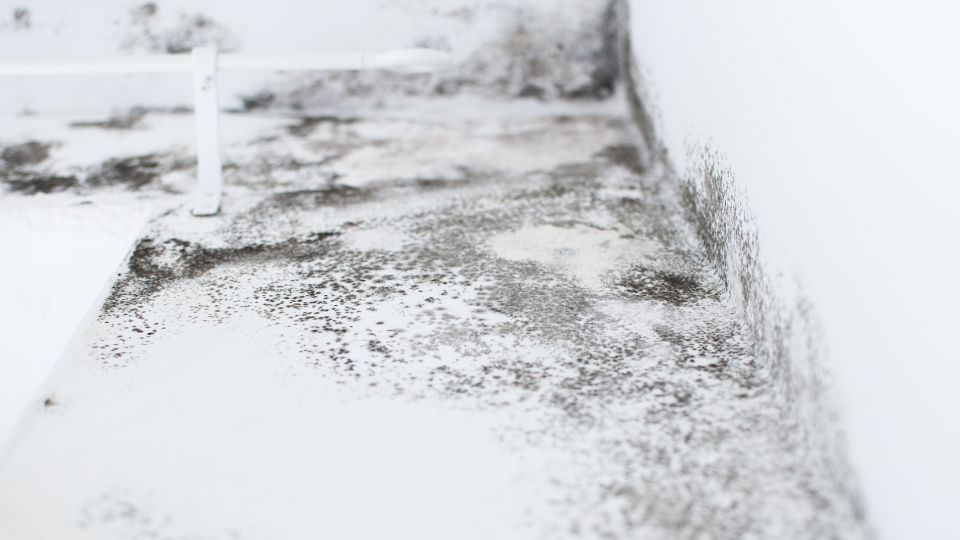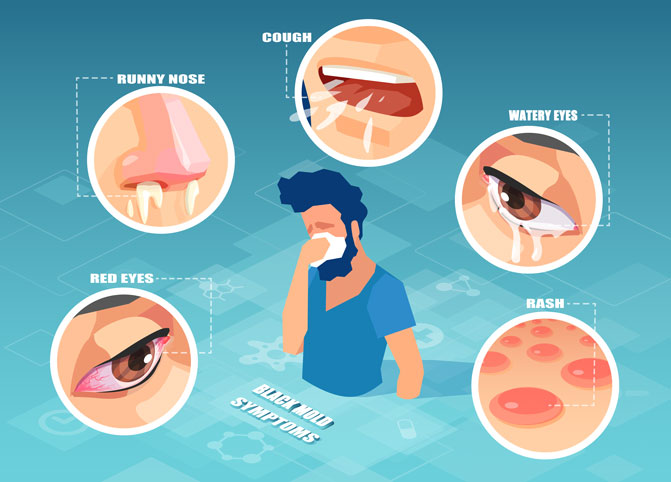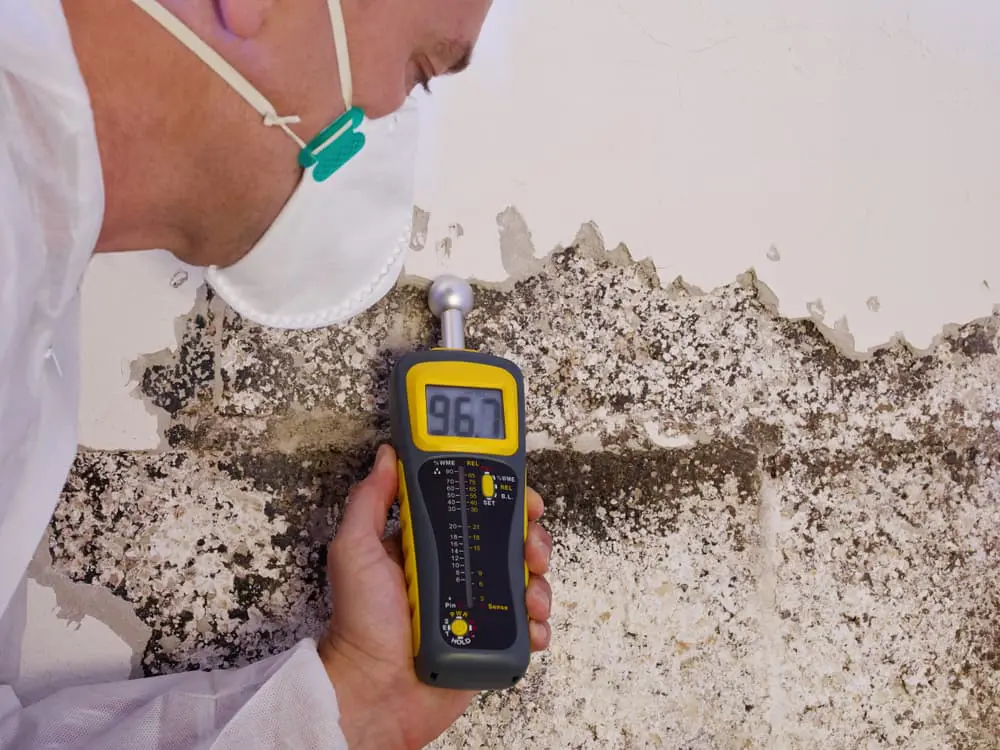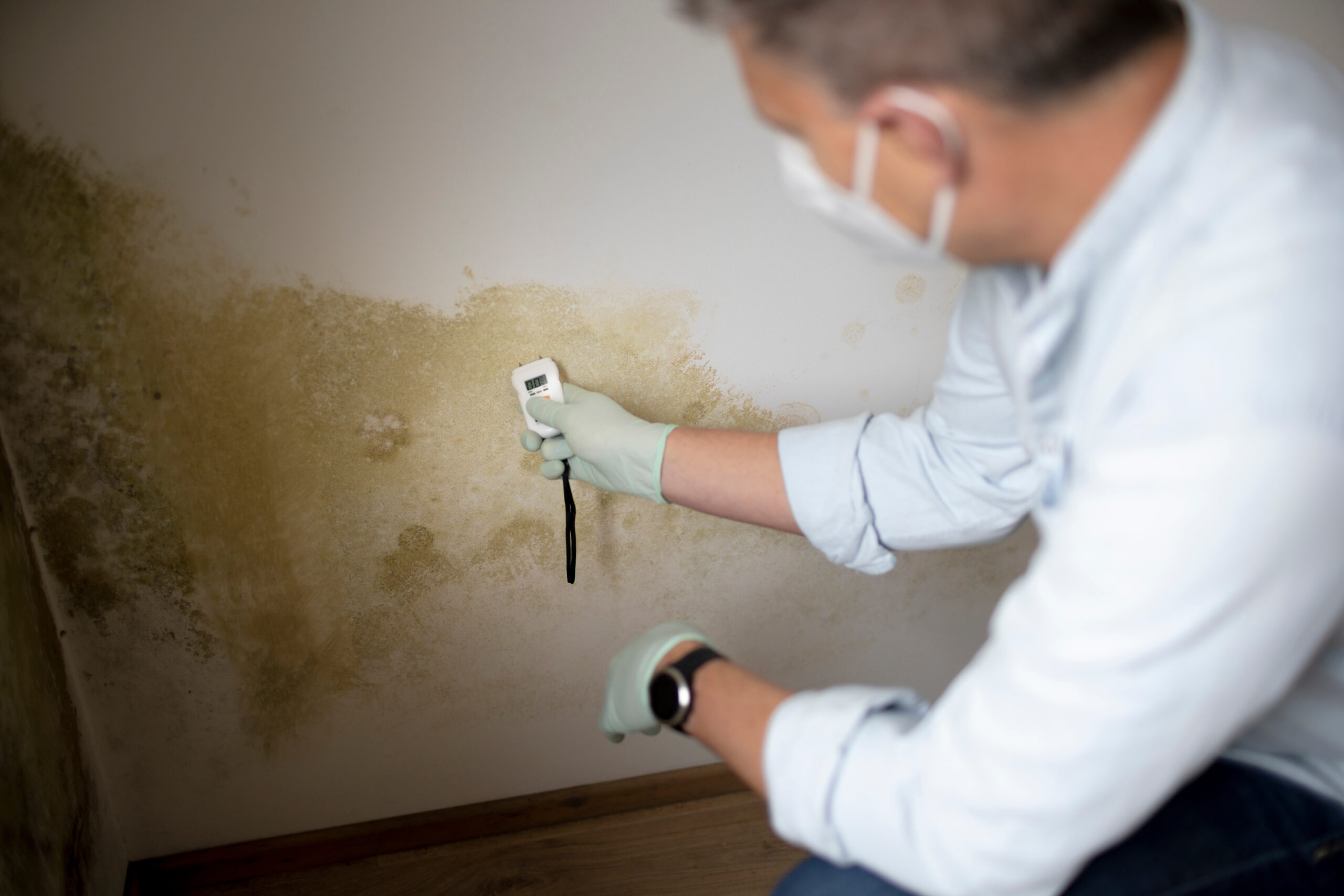Black mold, particularly the toxic variety known as Stachybotrys chartarum, can be a serious health hazard, especially when exposure is prolonged. Many homeowners may unknowingly live in environments with mold growth, unaware of the long-term consequences. In this comprehensive guide, we’ll cover the symptoms of long-term exposure to black mold, how it affects your health, and the steps you can take to safeguard your home and well-being.
What is Black Mold?

Black mold refers to a group of toxic fungi that thrive in damp, humid environments. The most notorious type is Stachybotrys chartarum, known for its greenish-black appearance. It typically grows in areas with consistent moisture, such as basements, bathrooms, and areas with water damage. While many types of mold can cause health issues, black mold is especially dangerous due to the mycotoxins it releases.
For more details on black mold and its health risks, check out this CDC guide on Stachybotrys chartarum.
Symptoms of Long-Term Exposure to Black Mold

Long-term exposure to black mold can lead to a wide range of symptoms, affecting both respiratory and neurological systems. The longer you’re exposed, the more severe these symptoms can become, potentially leading to chronic health issues.
Respiratory Symptoms from Long-Term Black Mold Exposure
Breathing in mold spores over an extended period can lead to significant respiratory problems. Symptoms may start as mild irritation but can progress into more serious conditions. Common respiratory symptoms include:
- Persistent coughing
- Wheezing or shortness of breath
- Chronic sinus infections
- Asthma or worsening asthma symptoms
- Allergic reactions, such as sneezing and nasal congestion
If you’re experiencing any of these symptoms, especially in areas with visible mold growth, it’s essential to act quickly. Long-term exposure could lead to irreversible damage to your lungs, especially for individuals with pre-existing conditions such as asthma.
Neurological Symptoms of Black Mold Exposure
One of the most concerning aspects of long-term black mold exposure is its potential effect on the brain and nervous system. Mycotoxins produced by mold can impair cognitive function and cause a variety of neurological issues, including:
- Memory loss or confusion
- Headaches and migraines
- Dizziness or light-headedness
- Depression or anxiety
- Difficulty concentrating or mental fog
Neurological symptoms are often overlooked, but if you notice a decline in cognitive function or mood changes along with exposure to mold, it may be time to consult a healthcare professional.
Skin and Eye Irritations Caused by Black Mold
Direct contact with black mold or its spores can lead to skin and eye irritation. Common symptoms include:
- Rashes or hives
- Itchy, watery eyes
- Red or irritated skin
Skin and eye symptoms are typically more immediate than respiratory or neurological effects but can become chronic with prolonged exposure.
Who is Most at Risk from Long-Term Black Mold Exposure?
While anyone can suffer from exposure to black mold, certain individuals are at higher risk of developing severe symptoms. These groups include:
- Infants and young children: Their developing respiratory systems are particularly vulnerable.
- Elderly individuals: Weakened immune systems can make it harder to fight off mold-related illnesses.
- People with respiratory conditions: Asthma, allergies, or chronic bronchitis can worsen with mold exposure.
- Individuals with compromised immune systems: Those undergoing chemotherapy or living with HIV are at greater risk of mold-related infections.
For a more detailed analysis of high-risk groups, see this article from EPA on mold and health.
How to Detect Black Mold in Your Home

Black mold can often go unnoticed, growing in hidden or hard-to-reach areas such as behind walls, under flooring, or in air ducts. To protect yourself from long-term exposure to black mold symptoms, consider the following detection methods:
Visual Signs of Black Mold
Black mold often appears as dark greenish-black spots on walls, ceilings, or floors. It’s commonly found in damp areas, like bathrooms or basements, but can also thrive in HVAC systems and other areas with poor ventilation.
Odor of Mold
If you notice a musty, earthy smell in your home, it may be a sign of hidden mold. Mold growth behind walls or under floors often releases spores into the air, which can cause a distinct, unpleasant odor.
Testing for Black Mold
If you suspect black mold in your home but cannot see it, professional mold testing is the best option. Mold remediation companies, like Citywide Mold Mitigation, offer professional testing and removal services to ensure your home is safe.
Steps to Take If You Suspect Long-Term Mold Exposure

If you suspect that you’ve been exposed to black mold over a long period, follow these steps to safeguard your health and home:
Consult a Healthcare Professional
If you’re experiencing any symptoms of mold exposure, see a healthcare provider for a thorough evaluation. Be sure to mention any potential mold exposure so your doctor can consider it when diagnosing your symptoms.
Contact a Mold Remediation Specialist
Professional mold removal is critical, especially with toxic black mold. DIY removal can often make the problem worse by spreading spores. Contact professionals, like Citywide Mold Mitigation, at 844-552-0467 for fast, effective mold remediation services.
Prevent Future Mold Growth
Once mold is removed, it’s essential to prevent it from coming back. Fix any water damage, ensure proper ventilation, and use dehumidifiers in areas prone to moisture buildup. Regular home maintenance can help you avoid future issues with black mold.
Conclusion: Protect Yourself from Long-Term Black Mold Exposure
Long-term exposure to black mold can have serious consequences for your health, affecting your respiratory system, neurological function, and skin. Identifying the symptoms early and addressing mold growth in your home can prevent further damage. Whether you’re dealing with mold now or want to safeguard your home for the future, Citywide Mold Mitigation is here to help.
For expert mold remediation services, contact Citywide Mold Mitigation at 844-552-0467. Our team will help ensure your home is mold-free and safe for you and your family.
FAQ
| Question | Answer |
|---|---|
| Can long-term exposure to black mold cause permanent health issues? | Yes, prolonged exposure to black mold can lead to chronic respiratory and neurological conditions. Early detection and removal are critical to preventing long-term health problems. |
| How long does it take to get sick from black mold? | Symptoms of black mold exposure can start within hours or days of exposure but worsen over time, especially with prolonged exposure. |
| Can I remove black mold myself? | DIY mold removal is not recommended, especially for black mold. Professional remediation ensures the complete removal and prevents mold spores from spreading. |
If you need help dealing with black mold, contact Citywide Mold Mitigation today for professional mold remediation services at 844-552-0467.

